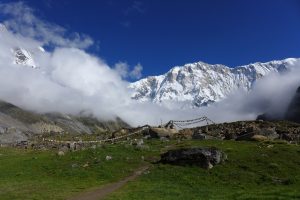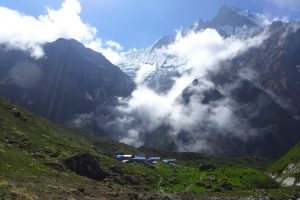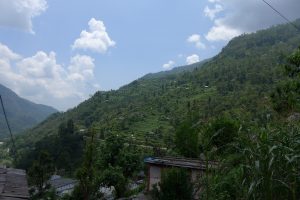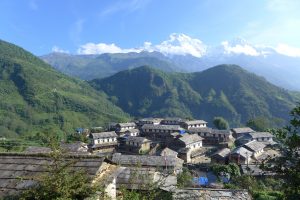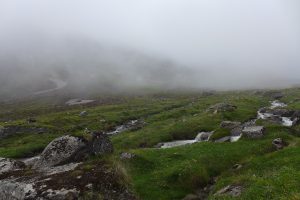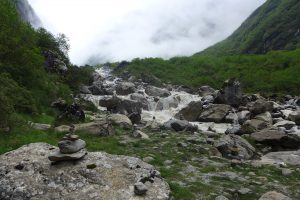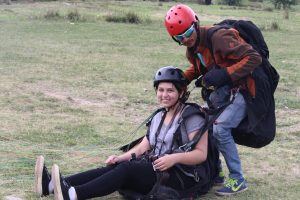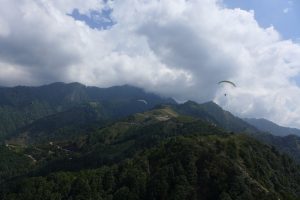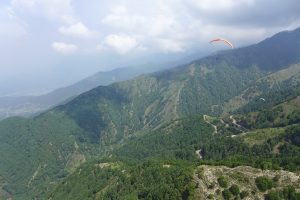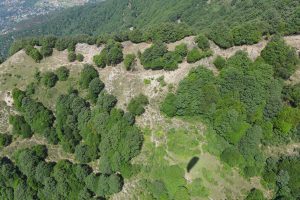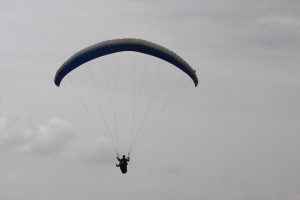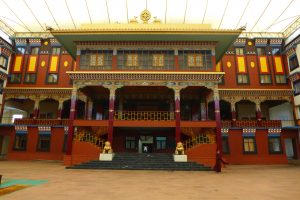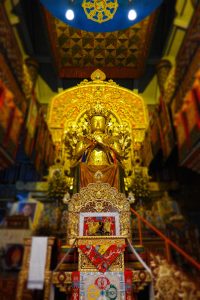I wake up at 5am, not from an alarm, but simply because I go to sleep by 8:30 or 9. I spend the morning repacking my backpack, a task that becomes more and more automatic, and then reading or listening to music before breakfast, which is always at 6:30. Breakfast is a quiet meal, eggs and toast eaten over sipped tea and gentle “How did you sleep?”s.
By 7:15 we’re on the trail, for me, the first 30 minutes are incredibly uncomfortable as I work and stretch my legs which without fail stiffen and lock up each night. Giri, our porter runs lifts up our bags without any visible effort and pulls the strap attached to them down over his forehead while Santosh, our guide, leads the way, walking slow and steady in preparation for the many hours ahead. The terrain varies, except that it also, invariably, goes up. There may be sections that roll gently downhill, or stairs to hop down, but every step down will be matched and then outmatched by the steps up. We are going to a Himalayan base camp, after all. We go for three hours, sometimes more, and depending on how I’m doing, we may or may not take breaks more than once an hour. We usually take breaks.
Around 11 we stop for lunch, which is quite an affair as all food has to be prepared from scratch once you order, so lunch stops are usually an hour and a half or so. Timing is not so exact in the mountains. The afternoon march is usually shorter, and we often reach our next guesthouse around 2. By then I am totally spent, and if the day was particularly hard, a quick nap is a necessity. If not, I’ll take a shower, read a but, listen to some music, or just sit quietly and watch as the view is overtaken by storm clouds. Rain is a certainty in the afternoons, with thunderclaps louder than anything I’ve ever heard. But we never got caught in the rain.
We all come back together for dinner around 6, with Giri and Santosh having their second bowls of Dal Bhat, the national lentil dish, and Florian and I eating whatever appeals on the surprisingly extensive menus. After dinner we sit together until dark and then go our separate ways, sure to get plenty of sleep before the next tough day. The guesthouses aren’t luxury accommodation, power is limited to a single bulb in each room, and I don’t recall ever sleeping on sheets that were stain free, but they are better than camping and are usually pretty clean. It is important to prepare for bed quickly, so the bugs have minimal time to find your light and invade your sleeping space.
Every day on the trail is different but there are some sights that remain consistent. The tried nods and “Namaste”s from fellow hikers, young local boys running up and down the difficult trails with large roughly woven baskets strapped to their foreheads, herds of mules with clanging bells around their necks as a warning that a force capable of pushing you off the trail is coming towards you. Of course, it is also always beautiful. The natural wealth of Nepal is unbelievable.
